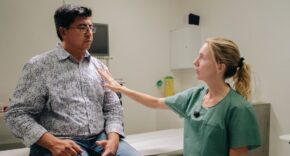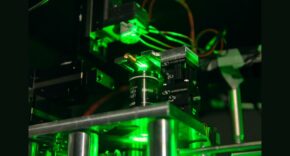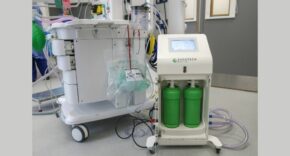
A survey of over 2,000 patients in the UK has revealed that almost 9 in 10 are confused by medical terms frequently used by healthcare professionals, fuelling health anxieties and creating health inequalities.
The YouGov survey, commissioned by Lexacom, asked patients if they could match medical terms commonly used by doctors, such as tachypnoea, dyspnoea, miosis and epiphora with the corresponding health conditions; watery eyes, shortness of breath, pinpoint pupils and rapid, shallow breathing. It found that just 11% overall could correctly identify the right meaning.
Dr Andrew Whiteley, MD and founder of Lexacom, explains: “Medical terms describing non-serious issues, which are commonly used in a GP surgery, could cause real alarm to patients. Technology can provide reliable and easy-to-understand health information in an accessible format, empowering patients to make informed decisions about their health while addressing health inequalities.
“We know that people with a greater understanding of medical conditions have better health. They are also more likely to have confidence in the healthcare professionals treating them.
Crucially, the technology exists to not only interpret GP notes into patient-friendly language on-the-go, but also relieve the admin burden on doctors by automatically SNOMED coding patient notes.
Dr Whiteley founded Lexacom in a bid to relieve this administrative burden on healthcare professionals, freeing them up to spend more quality time with patients. The company’s medical dictation technology, which can save up to 80% of time spent on admin, is already in use by over 25,000 UK GPs.
Lexacom Echo is revolutionary because besides being highly accurate, in ‘patient mode’ it automatically assigns definitions to medical terms. Its unique Comprehension Engine feature uses an NHS-specific dictionary and automatically translates hundreds of medical terms into layman language. For example, ‘apyrexial’ becomes ‘apyrexial (did not have a high temperature)’ and the term ‘epiphora’ would be followed with the detail ‘watering eyes’.
It is also the first solution to offer clinicians the ability to automatically code clinical information – codes are recognised and added as clinicians dictate notes into the system. Working intuitively, subjective and objective codes are added automatically while diagnostic and disease monitoring codes are triggered by saying ‘SNOMED’ before the medical term.
“One of the greatest benefits of automatic coding is how much time it saves,” explains Dr Whiteley. “For example, NHS pulses were coded 24,689,840 times in 2022. With each code taking 10 seconds to record, this amounted to 68,583 hours. Automatic coding allows this to happen five times faster, meaning it could save 2,286 NHS days each year – for pulses alone!”
Besides the myriad benefits for GPs, the technology ensures that patients understand what is being communicated – the study found that with medical notes dictated through Lexacom Echo, understanding among participants was five times higher.
Dr Whiteley concludes: “Communicating effectively improves health literacy, and a key part of successful communication is using language that is easy to understand. Our technology covers hundreds of medical terms, each giving patients a better understanding of their condition when viewing their notes in the NHS app. It is the only speech recognition software with this capability.”
Full survey results:
- Just 11% of participants could correctly match the right meaning, from a list of nine options given.
- Females were twice as likely to correctly interpret the GP notes as males (14% versus 7%).
- Residents in the East Midlands ranked lowest in understanding, with only 7% choosing the accurate explanation.
- Those in the South West came top, with 1 in 5 (20%) selecting the correct description.
- Full time students had a better grip on medical terms (16%), compared to those who were unemployed (6%).











